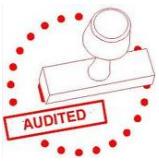You probably are like me and tend to watch the amount of visitors and web traffic to your website every day. If you have every noticed a sudden loss of website traffic or if the traffic has gone down considerably then it’s time to start thinking about an SEO audit if you don’t have the time to perform a full SEO audit by yourself. Here are five search engine optimization audit quick tips that will help you optimize your website.

Even if you already have someone who is taking care of your SEO for your website, it is good to have an SEO Audit done at least every 6 months to make sure that your website is performing the way it should: and having someone take a look at your website for search engine optimization issues that your SEO may have missed can be a good thing. In this blog post, I’m going to give you several tips that can help you during a Search Engine Optimization Audit.
The first step in your Search Engine Optimization Plan should include an SEO Audit. Taking this step will at the very least provide you comfort that your on-site search engine ranking factors are satisfactory and at best can provide a list of errors that when rectified, dramatically improve rankings for your entire site.
Here are my top 5 Search Engine Optimization Audit Quick Tips:
1. 404 errors – The top item we see in seo audits is 404 errors. A 404 error indicates that the server could not find what was requested. This includes broken links to other web pages (both internal and external) as well as images and documents on your page that cannot be found. When Google sees these errors, your website gets penalized. This penalty is more severe the less trust your domain has, so newer sites and smaller sites have the most to worry about here.
2. Repetitive Title Tags – An SEO Best Practice is to ensure every page on your website has a unique title tag. Repetitive title tags will cause Google to believe the page is dynamically generated and/or spammy. You definitely want to make sure all title tags are unique.
3. Improper url strings – URL strings should be clean, concise and target the appropriate keyword phrase. URL strings with special characters such as question marks, ampersands, equal signs, etc. In an effort to be efficient, search engine spiders develop a risk profile for a sites crawlability, and these special characters increase your sites perceived risk. The spiders do not want to risk getting caught up in an infinite loop within the website.
4. Website Structure Review – Your SEO audit should help you determine if you have the proper website structure that facilitates higher rankings for your targeted keywords. This includes determining which pages will target which keywords. This is especially important in cases where most of your web traffic is initiated online. For example, if you have a local site that provides information on restaurants, hotels, and social activities in Dallas, then you want to make sure you have the proper structure to facilitate the placement of the relevant keywords. In this example, lets say you want to optimize for dallas hotel, dallas hotels, dallas motel, dallas motels, cheap dallas hotel, cheap dallas hotels, cheap dallas motels. In this example, your decision is pretty straight forward. You simply need to decide if you want to include dallas hotels AND dallas motels on the same page (which will mean you will be optimizing that page for both terms as well as all relevant terms for each) or include dallas hotels on one page, and dallas motels on a different page.
As you can see, this gets significantly more complex when including 50 other nearby cities such as Fort Worth, Arlington, Garland, and Mesquite.
5. External CSS File – The CSS code should be in an external .css file on the site. If the css is included in the html file, Google has to work harder to find the actual content, which is not a good thing if you care about rankings.
During a proper SEO Audit, I personally tend to want review all of the search engine ranking factors and about another 200 or so specific items that can lead to better search engine rankings and more targeted traffic from the search engines. This is only a list of five of these items. Depending on the size of the website, an SEO Audit can take anywhere a few hours to several days to complete.